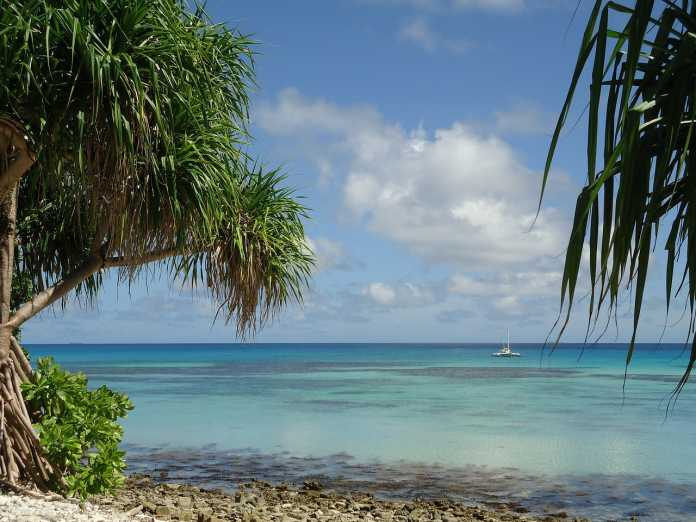The New York Times (NYT) recently posted an article, titled “A Surprising Climate Find,” which explains how island nations like the Maldives and Tuvalu are not, in fact, in danger of sinking under the seas due to climate change. This is true; a fact Climate Realism has repeatedly discussed. Atolls in particular are known to grow with rising water levels, this has been known for years if not decades.
The NYT climate reporter, Raymond Zhong, explains that as “the planet warms and the oceans rise, atoll nations like the Maldives, the Marshall Islands and Tuvalu have seemed doomed to vanish, like the mythical Atlantis, into watery oblivion.”
This is an exceptionally common claim from the climate alarmist media, and some of the nations themselves that are benefitting from massive aid packages and “reparations” from wealthier countries; money not be used to help their people relocate from the “sinking” islands, but rather to build infrastructure and boost tourism. In fact, the NYT promoted this falsehood as late as April 2024, with a story, titled, “Why Time Is Running Out Across the Maldives’ Lovely Little Islands.“
In his most recent piece Zhong writes:
“Of late, though, scientists have begun telling a surprising new story about these islands. By comparing mid-20th century aerial photos with recent satellite images, they’ve been able to see how the islands have evolved over time. What they found is startling: Even though sea levels have risen, many islands haven’t shrunk. Most, in fact, have been stable. Some have even grown.”
It is true that the islands are not sinking, but Zhong is wrong when he says this fact has only been discovered “of late.” His own article references a study published in 2018, which found 89 percent of islands in the Pacific and Indian Oceans increased in area or were stable, and only 11 percent showed any sign of contracting. So just three months after the NYT published an article claiming the Maldives were disappearing beneath the waves, the paper is now reversing itself based on research that existed six years before the April article was published. Since, Climate Realism has covered the claim many times, including with regard to Tuvaluan “refugees,” looking at tropical storms, and examining other island refugee claims, one wonders whether the NYT’s fact checkers were asleep on the job when the paper published its false story in April.
The facts about atolls growth and demise are not newly discovered. Scientists have known for decades, if not more than a hundred years, that atoll islands uniquely change with changing sea levels. Charles Darwin was the first to propose that reefs were many thousands of feet thick, and grow upwards towards the light. He was partially correct, though reality is more complicated than his theory.
In 2010, as discussed in the Climate Realism post “No, Rising Seas Are Not Swallowing Island Nations,” studies found that Tuvalu and Kiribati were growing, as well as Micronesia, and some had grown dramatically. Likewise in 2015, the same group of researchers reported that 40 percent of islands in the Pacific and Indian Oceans were stable, and another 40 percent had grown.
Zhong correctly says that ocean currents and waves can cause erosion, but also “bring fresh sand ashore from the surrounding coral reefs, where the remains of corals, algae, crustaceans and other organisms are constantly being crushed into new sediment.”
Climate at a Glance: Islands and Sea Level Rise, also confirms the fact that in Tuvalu in particular –often a poster child for islands supposedly threatened by sea level rise—“eight of Tuvalu’s nine large coral atolls have grown in size during recent decades, and 75 percent of Tuvalu’s 101 smaller reef islands have increased as well.”
The only “surprising” discovery in this story is that the climate desk for the New York Times was allegedly not aware of these facts before now. This information is not new. It could be, of course, that the NYT neglected to report the truth about island nations’ status previously simply because it did not conform to the alarming climate narrative they have been trying to push, but as the data has gotten too strong to ignore, they were forced to admit the truth with regard to growing islands in the face of rising seas.
























Admitting that the islands are not sinking must have been quite a surprise as they actually gathered data and facts than making things up and refuting claims! The credibility of these reports have become laughably distorted to fit their narrative but now we realize that just like increased use of fossil fuels has actually increased the benefits to society rather always being ignored and negative! Maybe they wish they hadn’t stated their misguided views earlier but now they’re desperately trying to convince themselves that the world is not being destroyed but actually thriving!